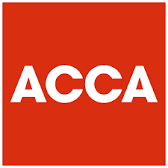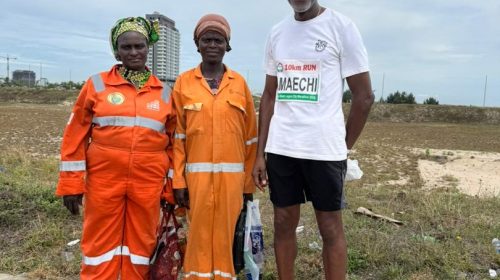Economic confidence in African region increased in Q4 —- Though outlook remains uncertain

Accountants and finance professional experts say economic confidence in 2020 Q4 stalled and remains fragile heading into 2021, finds the latest ACCA and IMA Global Economic Conditions Survey (GECS).
Both confidence and activity indicators increased in the Q4 survey. Previous experience of pandemics and a relatively young population mitigated prevented the worst-case scenario for Africa. Nevertheless, domestic restrictions amid renewed rises in infections and the fall in global trade and tourism have pushed many countries into steep recessions, including Nigeria.
Tracking confidence and fear indices, the global survey of more than 3,000 senior professionalsincluding 474 across Africa reflects the outlook and experiences of the thousands of businesses they advise.
The results from Africa show that nearly half (48 per cent) expect economic recovery to begin after Q2 and that:
• across Africa, both confidence and activity indicators increased in the Q4 survey, with an especially strong rebound in confidence from 8.7 to 11.9 points.
• But all the main activity indicators, such as orders and employment, remain below pre-crisis levels.
• the ‘fear’ indices – concern about customers and suppliers going out of business fell back in Africa in Q4 to 43 and 22 respectively, but both remain above long-run averages.
• previous experience of pandemics and a relatively young population prevented dramatic falls in output last year. Nonetheless, renewed rises in infections towards the end of 2020, plus a continued absence of foreign tourists, points to a weak start to 2021.
• falling GDP per capita across the region will push millions into extreme poverty according to the World Bank.
Thomas Isibor, head of ACCA Nigeria says: ‘These findings from our members working across Africa reveal an optimism about a recovery after Q2, but respondents are very aware of the current fragile economic position both in Africa and globally. Questions that address opportunities, such as investment and entering new markets, have taken small dips from Q3 to Q4 2020.’
The global 2020 Q4 findings reveal the ‘fear’ indices – concern about customers and suppliers going out of business – edged lower in Q4 but remain elevated. This clearly underlines the extreme uncertainty in the global economic outlook at the start of 2021. The confidence measure fell back in North America, having surged in the previous Q3. By contrast there was a big improvement in Middle East confidence, buoyed probably by continued recovery in oil prices. Inflation concerns remain negligible with concern about costs staying close to an all-time low.
Outlook for 2021
Looking ahead, over 50% of respondents in Asia Pacific, North America and South Asia expect sustainable recovery in the second half of this year. The most optimistic in this respect is the Middle East, where 54% expect recovery during the first half of the year.
Michael Taylor, Chief Economist at ACCA says: ‘Last year was the worst for the global economy for several decades. 2021 will see recovery but precisely when and how strong it will be is very uncertain. We anticipate a weak start, followed by a recovery gathering momentum through the second half. Much depends on the evolution of the COVID virus and variants relative to the progress of vaccination programmes and there is great uncertainty surrounding these developments.
‘Since our polling in December, many countries have seen increased COVID-19 infection rates, prompting governments to re-impose restrictions including national lockdowns. This means that global economic prospects early in 2021 have deteriorated since the Q4 survey. At the same time there has been progress on the approval of vaccines, raising hopes of a permanent improvement in economic conditions later this year.’
However, ACCA and IMA highlight that, unemployment rates will be rising in many countries, potentially undermining consumer confidence and limiting the strength of a rebound.
Raef Lawson, Ph.D., CMA, CPA, IMA vice president of research and policy, said: ‘The pandemic has forced millions into extreme poverty as emerging markets suffered recession for the first time in decades last year. Policy responses to the pandemic have left the public finances of most economies in a perilous state with budget deficits in the range of 10% to 15% of GDP in many countries with debt to GDP ratios well over 100%.’
He added: ‘All this presents a big test for policy makers in terms of when to withdraw policy support and when policy should be tightened to rebuild public finances. Policy mistakes would risk derailing economic recovery.’
Fieldwork for the 2020 Q4 survey took place between 20 November and 8 December 2020 and attracted 3086 responses from ACCA and IMA members, including over 300 CFOs.
GECS can be found here: https://www.accaglobal.com/gb/en/professional-insights/global-economics/2020-GECS-Q4.html







Leave a Reply